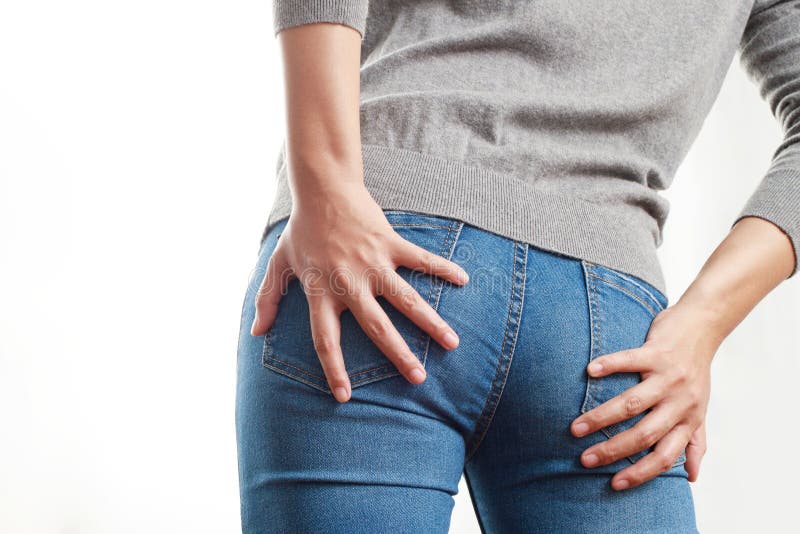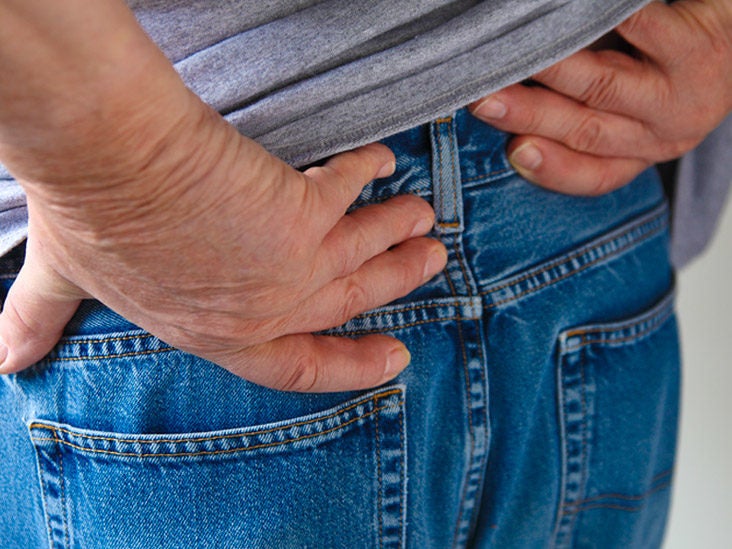When Do Hemorrhoids Become An Emergency? Emergency Alert
Have you ever thought about when do hemorrhoids become an emergency? Can piles cause death? The condition of hemorrhoids occurs when blood vessels in the rectum and anus get compressed and enlarged, resulting in irritation and inflammation of the area.
Internal hemorrhoids form within the rectum, whereas external hemorrhoids are those that develop beneath the skin surrounding the anus.
The symptoms of hemorrhoids may be pretty distressing, and a frequently asked concern about them is whether or not they can indeed kill you if left untreated.
In spite of the frequency with which patients with anorectal problems visit the ED, there is often a lack of data to guide treatment decisions and substantial variation in how these disorders are actually handled.
Providers in the ED should be familiar with how to assess and treat common anorectal symptoms.
Our first topic of discussion in this two-part series will be haemorrhoids and anal fissures.
Inflammation of the veins in and around the anal canal causes haemorrhoids. Veins around the anus may become dilated and swollen due to the added pressure.
Seek immediate medical assistance if you have had severe abdominal discomfort accompanied with per rectal bleeding after bowel movements. There may be a connection between these symptoms and haemorrhoids that have burst.
It might be awkward to bring up the subject of your haemorrhoids with anybody, even your doctor. However, 5% of U.S. adults get haemorrhoids annually, as reported by the National Institute of Diabetes and Digestive and Kidney Diseases.
Indeed, it is predicted that as many as 75% of all individuals will have to deal with haemorrhoids at some time in their life.
Table of Contents
Hemorrhoids
- Normal hemorrhoidal veins increase resting rectal tone and protect the anal sphincters from strain during bowel movements.
- Hemorrhoids are caused by damaging alterations in the connective tissue and dilatation of the vascular channels, both of which cause pain and other symptoms. The resulting prolapse, in varying degrees, is regarded to be the root cause of the symptoms.
- Classical risk factors such as pregnancy, firm stools, and extended toilet time have not been supported by recent case series or population research.
- Those with haemorrhoids may experience a variety of uncomfortable symptoms, including bleeding, itching, bloating, discharge, burning, and discomfort.
- In fact, up to half of all haemorrhoids that may be seen on an anoscope do not cause any symptoms at all.
Symptomatic haemorrhoids affect up to 5% of the population in the United States.
![]() Classification
Classification
When a hemorrhoid prolapses, it might be located either proximally or distally to the dentate line, giving rise to one of two classifications.

Columnar epithelium, which covers internal haemorrhoids and is not covered by pain fibres, is located proximal to the dentate line.
These symptoms include itching and a rash, a feeling of fullness, painless bleeding, and discharge. Goligher’s internal hemorrhoid categorization is based on prolapse and reducibility:
- If you are in Grade 1, you must not prolapse at all.
- Strain-induced prolapse and self-reduction characterise Grade 2.
- A prolapse of the third grade may be corrected by hand when there is tension.
- Ulcerated, putrid, and terribly smelling Grade 4 wounds may develop strangulated and are very painful.
- Hemorrhoids on the outside of the body are coated with anoderm, which contains nerve endings that cause discomfort. Symptoms include blood loss, bloating, discharge, pruritis, and discomfort or pain during bowel movements.
- A thrombosed external hemorrhoid, identified by a change in colour, swelling, and/or a palpable clot, is very painful during defection, intercourse, sitting, or walking.
Why Are Hemorrhoid Symptoms Alarming?
The condition of hemorrhoids is quite widespread, impacting millions of people all over the globe every year. Being overweight, eating a poor diet, spending a lot of time sitting, and being pregnant raises your risk of developing these conditions. As you get older, your chances of developing hemorrhoids rise as well.
Those who have never encountered hemorrhoids symptoms, either firsthand or via the experience of a friend or family member, may find them unpleasant and uncomfortable.
Itching around the anus, discomfort during bowel movements or while changing sitting positions, tiny bumps around the anal hole, bleeding or blood in the stool, and discharge of mucus or fecal matter during a bowel movement are all common symptoms associated with hemorrhoids.

Regardless of how level-headed one may seem to be, anybody would be worried if their body started to display these signs and symptoms.
What so many people fear when they first see the signs and symptoms of hemorrhoids is understandable, given the situation. They are not typically thought to be life-threatening, on the other hand.
Get To Know Ruptured Hemorrhoids
When the internal pressure of the hemorrhoid grows, a blood clot that has formed there might break (during the excessive straining from either constipation or diarrhea).
Severity Of Ruptured Hemorrhoids
Hemorrhoid bleeding is an emergency situation that requires immediate medical attention. Extreme lightheadedness, fainting, or even hypotension/shock are some of the significant complications that may result from excessive blood loss.
Per rectal bleeding is often a symptom of a more serious problem, such as cancer of the colon or urethra.
Due to the similarities in presentation between these diseases, it is imperative that a thorough physical examination and following relevant diagnostic tests be performed by qualified doctors.
Management Of Ruptured Hemorrhoids
Once a hemorrhoid has ruptured, the patient needs quick attention, so they may take the necessary steps:
- Gentle pressure with clean, soft towels or sanitary napkins to stop bleeding.
- Reduce swelling and halt the bleeding by using cold compresses or a cold sitz bath.
It is imperative to seek medical assistance quickly if per rectal bleeding continues and the patient has symptoms such as palpitations, vertigo, fainting, and/or cold hands and/or feet.
Treatment Of Ruptured Hemorrhoids
When a hemorrhoid ruptures and causes heavy per rectal bleeding, it is most often the external hemorrhoid that has ruptured.
Hemorrhoidectomy is the standard method of therapy. Because of the high success rate and the speed with which patients may resume their normal lives, this method is often regarded as the best option.
Surgical procedures may be scheduled as “Day – Surgery” or outpatient procedures that don’t need hospitalisation, depending on the patient’s condition.
Prevention Of Ruptured Hemorrhoids
- Stay relaxed and don’t force the motion too much.
- Using the restroom too often might cause health problems.
- Aim for 8 to 10 glasses of water every day.
- Eat more fiber-rich foods including fruits, veggies, and whole grains.
- Do not hesitate to see a doctor if you feel the necessity arises.
A hemorrhoid rupture may cause life-threatening blood loss and subsequent problems.
The key to successful therapy is a prompt and accurate diagnosis that rules out other possible causes.
Constant improvements in surgical methods and diagnostic tools have led to the development of novel therapies that help patients get the most out of their treatment with the least amount of risk, the least amount of downtime, the least amount of time away from their normal lives, and the fewest number of recurrences.
Can Hemorrhoids Ever Become Fatal?
‘Rectal prolapse is a medical disorder in which the rectum (the last section of the large intestine) loses the usual attachments that hold it fixed within the body, enabling it to slip out through the anal orifice and turn the body ‘inside out.’
Rectal prolapse mostly affects adults, with women over 50 having a six-fold increased risk compared to males. It may be humiliating, and it often has a detrimental impact on a patient’s overall quality of life.”

While hemorrhoids usually clear up quickly and often don’t require the input of a medical professional, some issues can arise that can cause dangerous complications.
In the case of internal hemorrhoids, prolapsing can occur when they push through the rectum into the anus. This can often be accompanied by significant bleeding, which is always an alarming symptom.
Prolapsed hemorrhoids are not life-threatening, but problems can occur when they prolapse extensively outside of the anal opening and become visible. In this instance, they will require treatment to rectify the issue before it progresses into a rectal prolapse.
When Do Hemorrhoids Become An Emergency?
If you see bright red blood in your stool, you should consult your doctor right once since the condition may not be caused by hemorrhoids at all.
Your doctor will most likely propose a battery of tests to discover the specific cause of your rectal bleeding, and they will also provide recommendations for future treatment if necessary.
Hemorrhoids will usually cease bleeding after a short period. They may bleed abundantly if they have a burst thrombosed hemorrhoid, but even in this instance, the bleeding will stop within a short period.
It’s possible that your rectal bleeding is due to another, more severe illness, such as an anal fissure, anal or colon cancer, angiodysplasia, Crohn’s disease, diverticulosis, proctitis, or a solitary rectal ulcer syndrome if it doesn’t stop.
Can Hemorrhoids Cause Death?
Hemorrhoids are a common source of irritation, discomfort, and suffering for many people. The symptoms that are connected with them may be frightening, particularly in the event of rectal bleeding or thrombosed hemorrhoids.
However, unless another ailment comes up simultaneously, it is exceedingly improbable that hemorrhoids would result in death unless severe.

If you have any concerns regarding prospective hemorrhoids, or if you have hemorrhoid symptoms that linger even after treatment, you should always visit your doctor right once. Hemorrhoids are not lethal, although they have symptoms similar to those of a variety of other potentially dangerous illnesses.
When Should I Seek Medical Help For Hemorrhoids?
Many individuals get relief from their haemorrhoids by using home therapies. However, you may be wondering how severe haemorrhoids need to get before you need medical attention. This is condition-specific.
Some of the most common signs of a hemorrhoid that need to be treated medically are:
Spotting or Bleeding Rectally
Rectal bleeding is never to be ignored. Rectal bleeding may be caused by haemorrhoids, but it can also be an indication of a more severe gastrointestinal disorder like colon cancer or inflammatory bowel disease.
Hemorrhoid that has ruptured and prolapsed
Sometimes, internal haemorrhoids may prolapse through the anal opening or fall out of the anal opening entirely. While it’s possible for prolapsed haemorrhoids to heal itself or to heal more slowly with your support, neither of these options is ideal.
A prolapsed internal hemorrhoid may cause substantial discomfort, itching, bleeding, and pain if it becomes stuck outside the anus and is not treated.
Alterations in bowel routine
When you have a prolapsed internal hemorrhoid, you may feel like you can’t poop all the way out. Displaced toilet paper may also create mucous discharge or make it harder to clean up after a bowel movement.
Even though these symptoms may be annoying, they are simply remedied by a doctor.
Disruptive pain that affects your regular routine
Call us if you’re having trouble sitting comfortably or passing stool due to haemorrhoids. When we can help you get relief from your haemorrhoids with medical solutions, there’s no excuse to suffer in silence.
